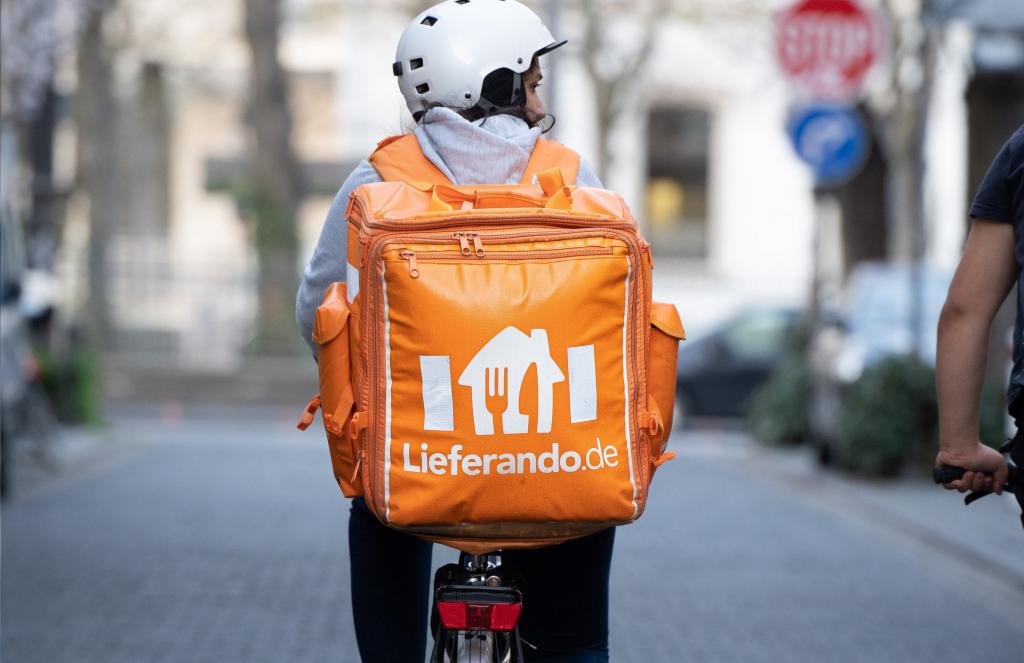Thessaloniki gets ready for its metro launch in November
The underground rapid transit lines have been under construction for almost two decades due to various project delays
 TheMayor.EU logo
TheMayor.EU logo 
The company argued that their riders already owned bikes and phones, so they would not be significantly burdened
According to the Federal Labour Court in Germany, companies have to provide their employees with bikes and phones
Last week, the Federal Labour Court in Germany ruled that local delivery services need to provide their employees with work bicycles and mobile phones or offer financial compensation to workers who use their own devices.
The move came as a result of a court case between Frankfurt-based courier Philipp Schurk and the delivery platform Lieferando. The employee demanded from the company to provide him with the essential tools for the job.
Lieferando, the German subsidiary of Just Eat Takeaway, a firm based in Amsterdam, argued that so-called riders working for their platform already had bicycles and internet-enabled smartphones, so they would not be “significantly burdened” by using their own equipment.
The company also said they offered employees a 0.25 euro-cent per kilometre voucher for bicycle repairs at a repair shop of the company’s choosing. It did not, however, offer a similar perk for phone repairs.
The courts disagreed, saying that the practice makes Lieferando’s delivery riders shoulder the risk of damage to their own equipment, which was an unreasonable disadvantage. Furthermore, the court ruled that the company should provide riders with roadworthy bikes and phones capable of doing the required tasks or alternatively afford monetary compensation.
The German Food and Catering Union NGG backed Schurk in the court case. Freddy Adjan, deputy chairman of the union, announced that this is a strong and ground-breaking signal for the start of the creation of fair and equal conditions in the gig economy.
He continued by explaining that Lieferando’s practice undercut the company’s hourly wage, which was already only slightly above the minimum. He explained that the company will no longer be able to pass the equipment maintenance cost onto its workers.

The underground rapid transit lines have been under construction for almost two decades due to various project delays

Now you can get your wine in Talence by paying directly in Bitcoin

That’s because the state has to spend money on updating the railway infrastructure rather than subsidizing the cost of the popular pass

Rethinking renewable energy sources for the urban landscape

The examples, compiled by Beyond Fossil Fuels, can inform and inspire communities and entrepreneurs that still feel trepidation at the prospect of energy transition

Now you can get your wine in Talence by paying directly in Bitcoin

The 10th European Conference on Sustainable Cities and Towns (ESCT) sets the stage for stronger cooperation between the EU, national and local level to fast track Europe's transition to climate neutrality.

At least, that’s the promise made by the mayor of Paris, Anne Hidalgo

The underground rapid transit lines have been under construction for almost two decades due to various project delays

At least, that’s the promise made by the mayor of Paris, Anne Hidalgo

Hostal de Pinós is located in the geographical centre of the autonomous region

Despite its church-y name, the district has long been known as the hangout spot for the artsy crowds

Urban dwellers across the EU are having a say in making their surroundings friendlier to people and the environment.

Forests in the EU can help green the European construction industry and bolster a continent-wide push for architectural improvements.

Apply by 10 November and do your part for the transformation of European public spaces

An interview with the Mayor of a Polish city that seeks to reinvent itself

An interview with the newly elected ICLEI President and Mayor of Malmö

A conversation with the Mayor of Lisbon about the spirit and dimensions of innovation present in the Portuguese capital














